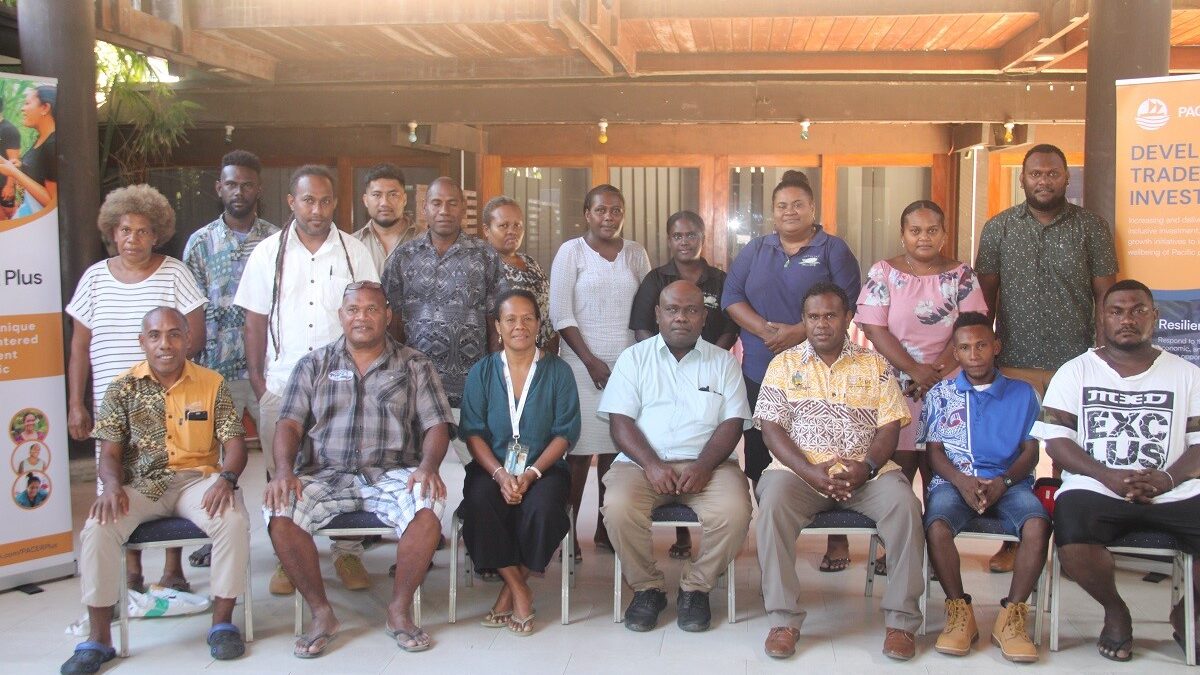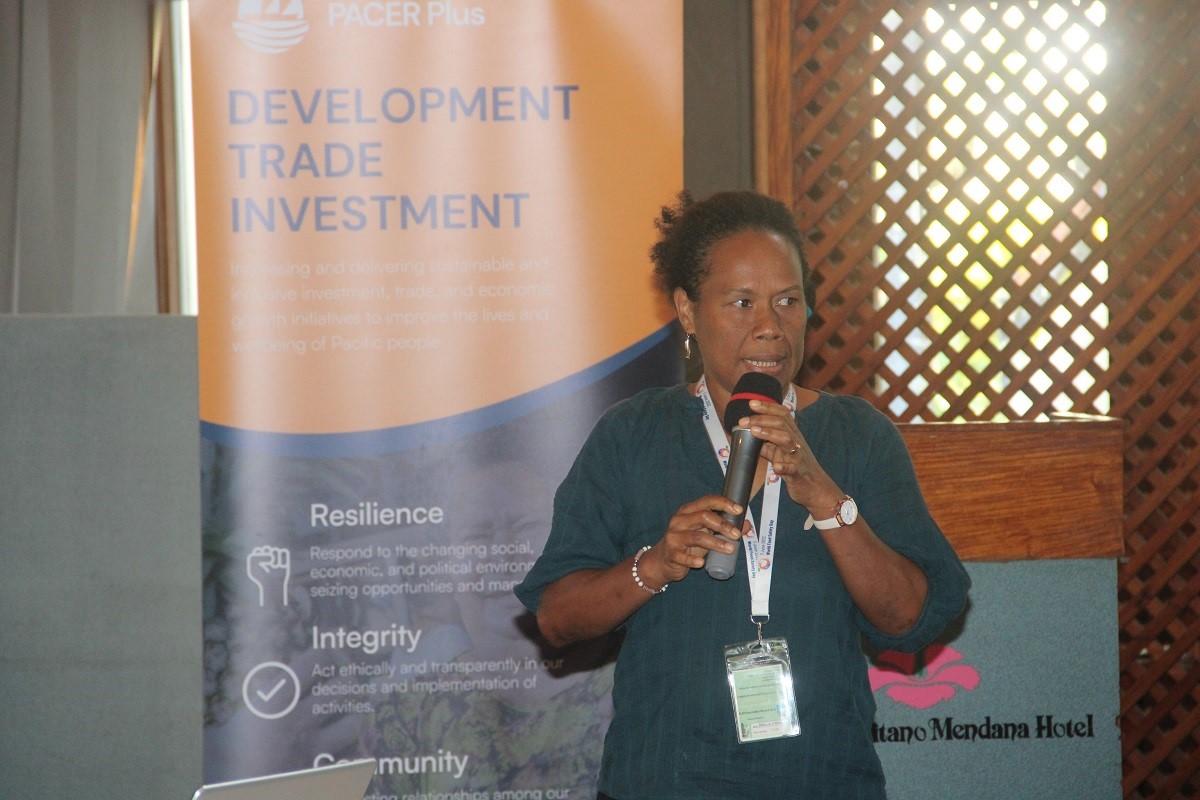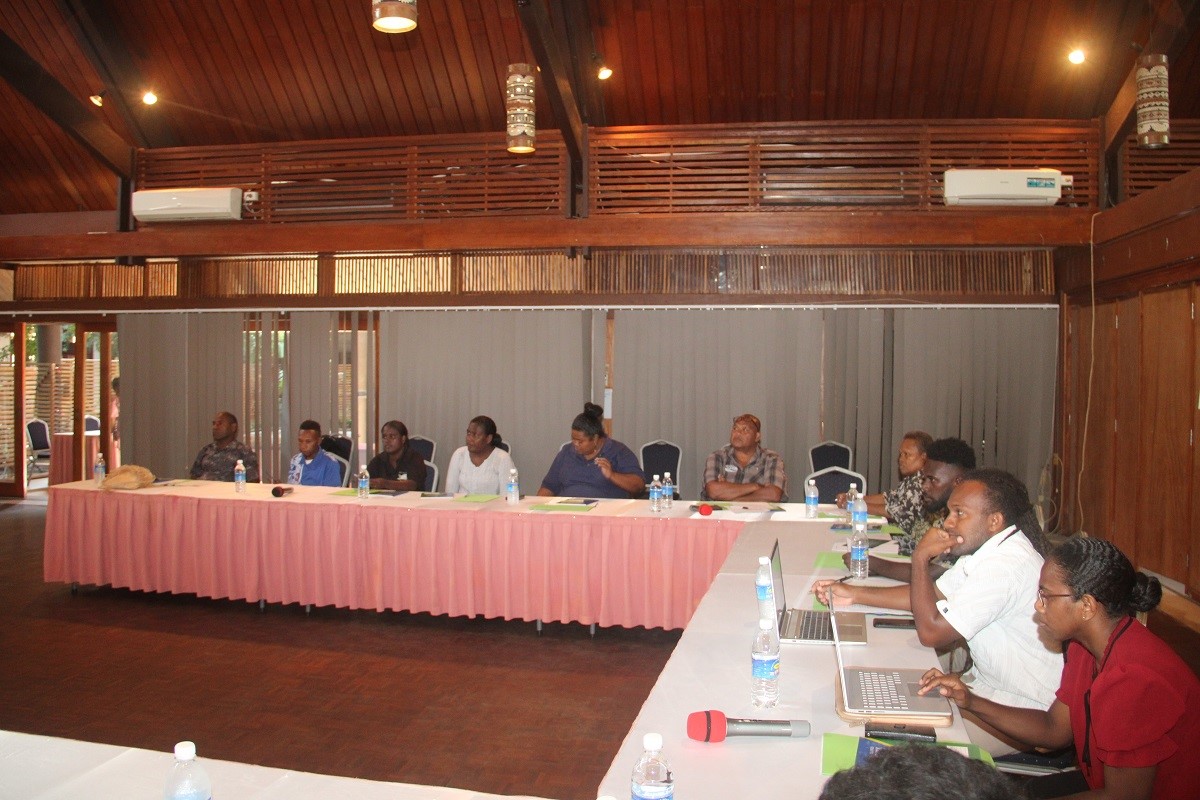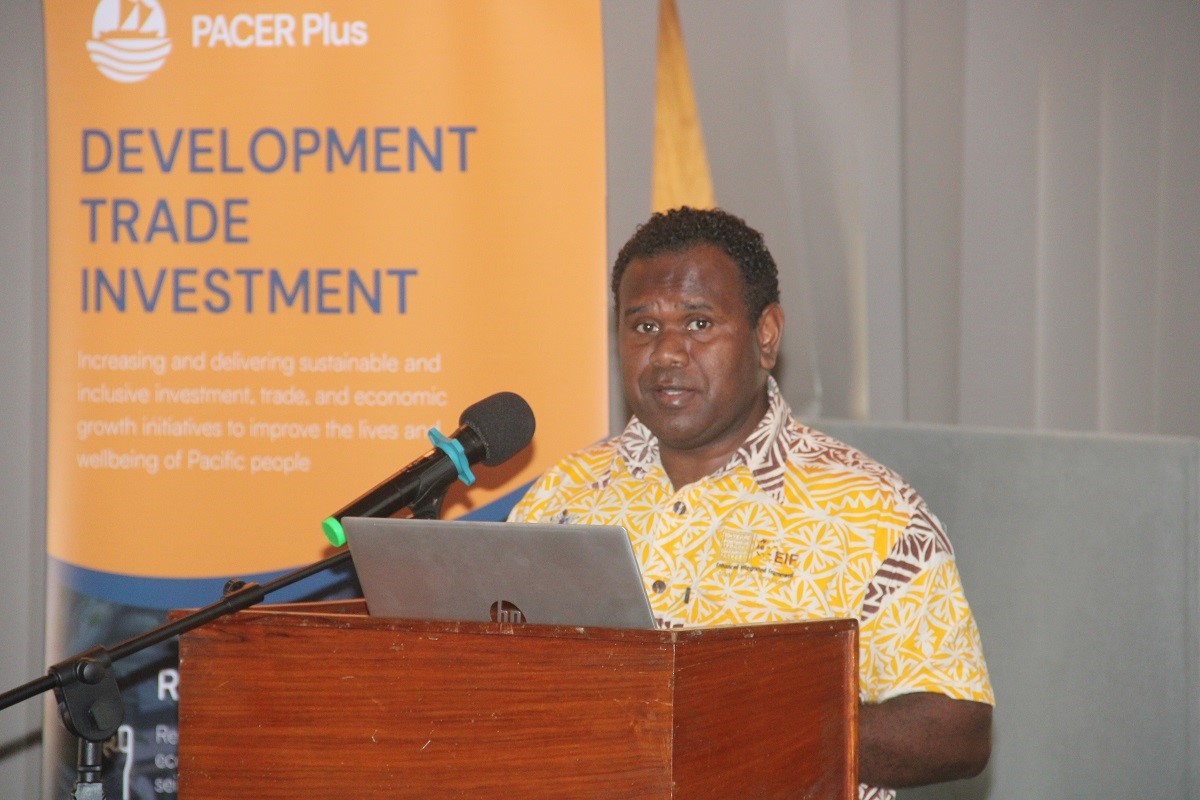

Food processors and exporters with officials from the Ministry of Foreign Affairs and External Trade and the Ministry of Health and Medical Services following the opening of the training yesterday.
Food safety Training for Food Processors and Exporters currently underway.
A Food safety Training for Food Processors and Exporters on Food Safety Requirements and the Importance of compliance and Implementation of Food Safety Plans (HACCP) is currently underway in Honiara.
The two-days training is funded by PACER Plus under its National Implementation Plan for Solomon Islands and conducted by the Food Safety Unit within Environmental Health Division of the Ministry of Health and Medical Services.

Mrs. Patricia Soqoilo from the Ministry of Health & Medical Services.
The Deputy Secretary of the Ministry of Foreign Affairs and External Trade, Cornelius Walegerea gave the opening address to the 20 participants and facilitators who attended the training on Monday 24th April. The Ministry of Foreign Affairs and External Trade is the focal point for PACER Plus in the Solomon Islands.
Mr. Walegerea said Solomon Islands is a party to various Trade Agreement including the Pacific Agreement on Closer Economic Relations Plus or PACER Plus and within the respective trade arrangements includes a Chapter on Sanitary and Phytosanitary (SPS) measures.
He said food processors and exporters in the Country continue to diverse their products in the domestic and international market through exports and as such there is an increasing demand and need for Food Safety Trainings and the adoption of Food Safety Plans.

Participants at the training.
Solomon Islands has the Pure Food Act 1996, and food control regulations which mandates the requirement of food safety for exporting food products.
“The adoption and implementation of such Food Safety Standards ensures that we produce and export improved quality products, as well as addressing sanitation issues which can hinder our potential in accessing regional and international markets, therefore, it is important that we adhere to such regulations to avoid the challenges that might prevent us from entering overseas markets”, said Mr Walegerea.
HACCP is a critical Requirement and compliance mandated by law to accessing food Export markets and the training will provide awareness to Food processors and exporters on the Food Safety Requirements of the PURE ACT 1996 and subsequent legislation and most critical for facilitation of food export.

The Deputy Secretary of the Ministry of Foreign Affairs and External Trade, Cornelius Walegerea gave the opening address yesterday.
Consumers these days are more concerned about their health, and therefore pay very close attention to the safety of food products in the domestic or international market.
Walegerea further stated, that it is very important that Competent Authorities and food operators are responsible for the safety of all food products made available to consumers.
Deputy Secretary, Mr Walegerea urge food processors and exporters to adopt and implement such food safety standards or plans in order for their products to enter regional and international markets.
The Food safety unit of the Ministry of Health & Medical Services is so grateful to receive the necessary support to conduct the training, and acknowledges the Department of External Trade under the Ministry of Foreign Affairs & External Trade as the National Focal Point for PACER Plus for this arrangement.
—MFAET PRESS RELEASE